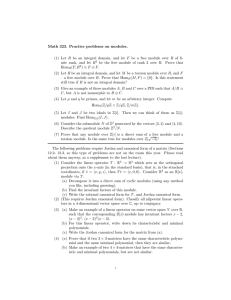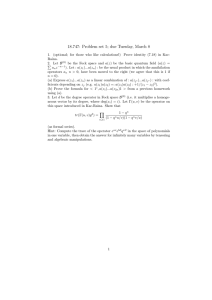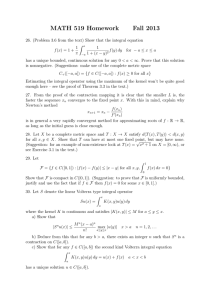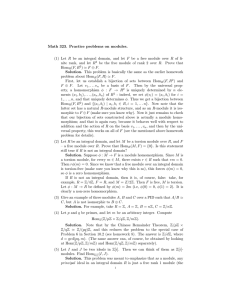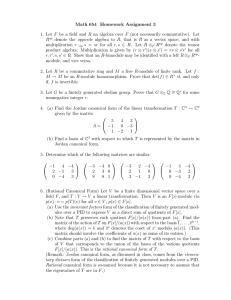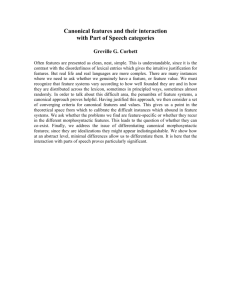Math 323. Practice problems on modules.
advertisement
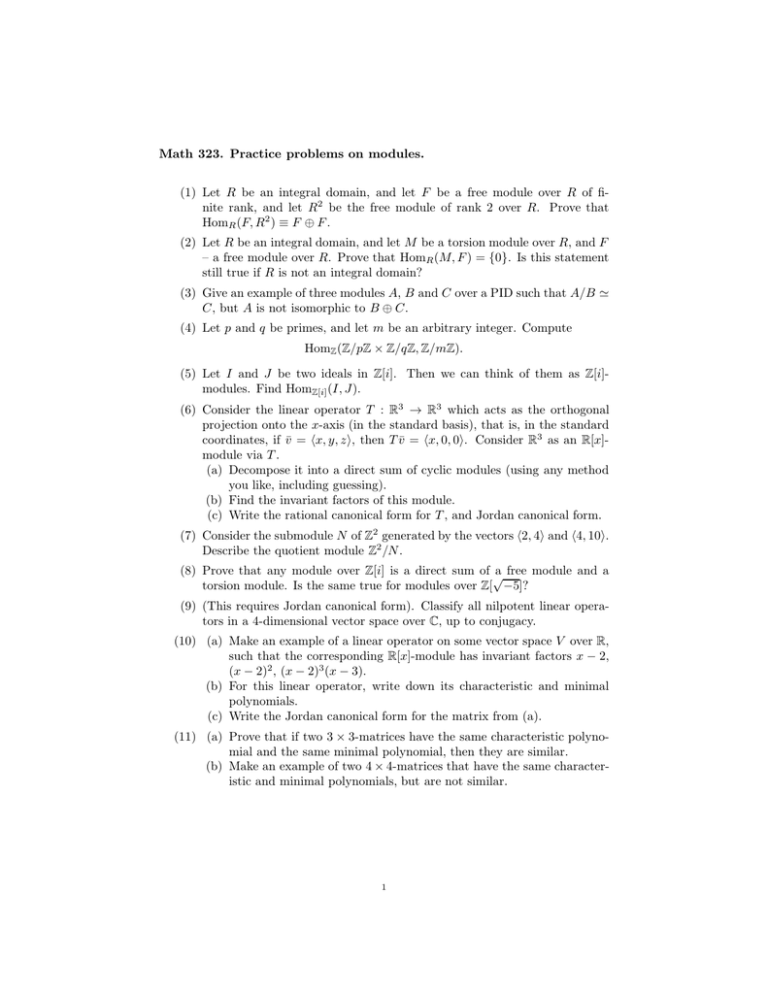
Math 323. Practice problems on modules.
(1) Let R be an integral domain, and let F be a free module over R of finite rank, and let R2 be the free module of rank 2 over R. Prove that
HomR (F, R2 ) ≡ F ⊕ F .
(2) Let R be an integral domain, and let M be a torsion module over R, and F
– a free module over R. Prove that HomR (M, F ) = {0}. Is this statement
still true if R is not an integral domain?
(3) Give an example of three modules A, B and C over a PID such that A/B ≃
C, but A is not isomorphic to B ⊕ C.
(4) Let p and q be primes, and let m be an arbitrary integer. Compute
HomZ (Z/pZ × Z/qZ, Z/mZ).
(5) Let I and J be two ideals in Z[i]. Then we can think of them as Z[i]modules. Find HomZ[i] (I, J).
(6) Consider the linear operator T : R3 → R3 which acts as the orthogonal
projection onto the x-axis (in the standard basis), that is, in the standard
coordinates, if v̄ = hx, y, zi, then T v̄ = hx, 0, 0i. Consider R3 as an R[x]module via T .
(a) Decompose it into a direct sum of cyclic modules (using any method
you like, including guessing).
(b) Find the invariant factors of this module.
(c) Write the rational canonical form for T , and Jordan canonical form.
(7) Consider the submodule N of Z2 generated by the vectors h2, 4i and h4, 10i.
Describe the quotient module Z2 /N .
(8) Prove that any module over Z[i] is a direct sum of √
a free module and a
torsion module. Is the same true for modules over Z[ −5]?
(9) (This requires Jordan canonical form). Classify all nilpotent linear operators in a 4-dimensional vector space over C, up to conjugacy.
(10) (a) Make an example of a linear operator on some vector space V over R,
such that the corresponding R[x]-module has invariant factors x − 2,
(x − 2)2 , (x − 2)3 (x − 3).
(b) For this linear operator, write down its characteristic and minimal
polynomials.
(c) Write the Jordan canonical form for the matrix from (a).
(11) (a) Prove that if two 3 × 3-matrices have the same characteristic polynomial and the same minimal polynomial, then they are similar.
(b) Make an example of two 4 × 4-matrices that have the same characteristic and minimal polynomials, but are not similar.
1
